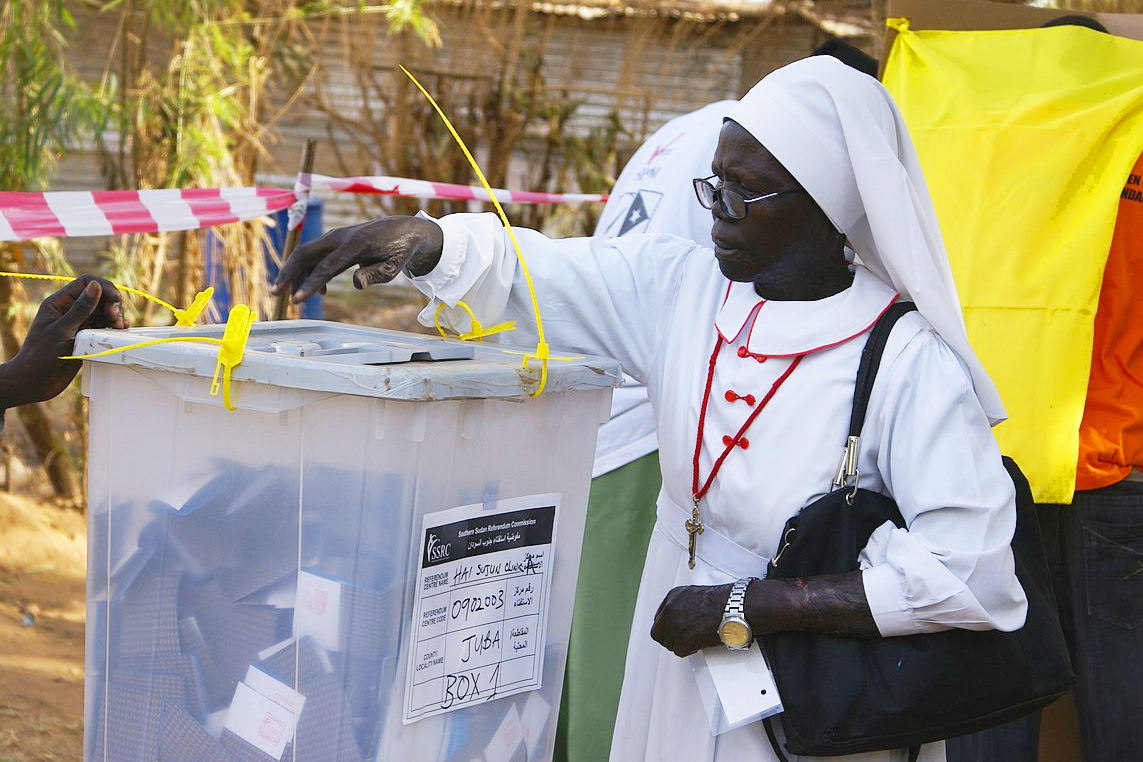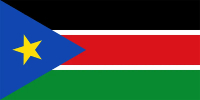South Sudan’s President Salva Kiir has made a political career of postponing elections—enabling him to remain de facto president since 2005, even though he was only authorized for one 4-year term following South Sudan’s vote for independence in 2011. Since then, he has navigated extensions in 2015, 2018, 2020, and 2022.
Kiir’s announcement that there will be elections in 2024, therefore, is noteworthy. His intention to stand as a candidate, in contrast, is not surprising. He is the only president this country of 11 million people, the youngest in Africa, has ever known. Thrust into national political leadership after the untimely death in 2005 of South Sudan’s independence leader, John Garang, the 72-year-old former guerilla army commander appears intent on holding power indefinitely. In addition to postponing elections, Kiir benefits from a 2011 Transitional Constitution that does not include a limit on presidential terms (though a 2020 National Dialogue has unanimously called for one to be adopted).
South Sudan has faced acute turmoil since it descended into civil conflict in 2013—a result of a long-running political rivalry between Kiir and First Vice President Riak Machar—one with strong ethnic overtones given that each leader has mobilized support from their respective ethnic bases, Dinka and Nuer, the two largest in South Sudan.
Armed militias roam the countryside wreaking violence and pillaging with impunity.
The conflict is estimated to have cost more than 400,000 lives. While now considered a low-intensity conflict, armed militias (often ethnically based) roam the countryside wreaking violence and pillaging with impunity. The trauma and fear of this violence is seared deeply within the population with South Sudan holding the ignominious distinction of having a greater share of its population as refugees (42 percent) than any other in Africa. Typically, refugees will return home as soon as it is safe to do so. That they resist doing so in South Sudan, therefore, is telling.
Adding to these strains has been the outbreak of conflict in Sudan in 2023. This has resulted in over 400,000 South Sudanese refugees being forced back into the insecurity of their home country, from which they had tried to flee. With three-fourths of the South Sudanese population in need of humanitarian assistance, these latest displacements will place additional burdens on already strained assistance efforts.
South Sudan arguably represents the most challenging electoral environment Africa has faced in recent years. The country ranks at or near the bottom globally on the United Nation’s Human Development Index, Freedom House’s Global Freedom Index, and Transparency International’s Corruption Perception Index.
South Sudan is a land-locked expansive country the size of Afghanistan with rugged terrain and low-lying plains, leaving half of all counties subject to flooding that displaces up to a million people annually. South Sudan’s income per capita has contracted to roughly a quarter of what it was at independence despite considerable oil revenues, which are largely controlled by South Sudanese elite with ties to the government.
Perhaps the greatest impediment to viable elections in South Sudan is the lack of political will—to hold elections, create independent oversight bodies, control corruption, or build a professional military.
Despite these logistical and economic challenges, perhaps the greatest impediment to viable elections in South Sudan is the lack of political will—to not only hold elections but also to create independent oversight bodies, control corruption, or build a professional military and police force. Democratic political institutions remain weak or absent, perpetuating limited power sharing or accountability. In addition to the generalized insecurity, opposition political leaders, civil society leaders, and journalists are regularly threatened with violence or detention.
The 2024 elections are further subject to the government conducting a census and adopting a new constitution—formidable institutional exercises under any circumstances. Such preconditions may yet serve as a pretext for further electoral delays and de facto term extensions.

Voting in Juba, South Sudan. (Photo: Ranjit Bhaskar)
Despite these serious challenges, South Sudan has a resilient civil society that continues to call for reforms, greater transparency, and government accountability. South Sudan’s network of churches has been a particularly important source of social capital and a means of facilitating dialogue across the country’s diverse communities over the years.
A key focus of reformers has been the passage of the National Elections Act in 2023, which institutes greater geographical representation as well as a 35-percent threshold of female representation drawn from party lists. The Act is aimed at ensuring inclusivity and reducing the monopolization of power by a single party. A second law of interest is the Political Parties Act, which provides mechanisms for regulating South Sudan’s notoriously personality-driven political parties by upholding internal democratic governance and accountability standards within party constitutions.
The country has also embarked on a long-delayed effort to create an 83,000-strong unified national army by integrating forces from opposition militias. The first deployments of this unified force occurred in late 2023.
Given the challenging context in South Sudan, any democratic progress in 2024 is likely to be incremental. However, efforts that advance more independent oversight bodies such as an election commission, constitution drafting committee, census, central bank, and security oversight board—would be instrumental to building political institutions that are responsive to South Sudanese citizen aspirations. This will be essential to shift South Sudan’s highly polarized political class away from the winner-take-all governance mentalities that have been so destructive.


 South Sudan: December 22 (postponed)
South Sudan: December 22 (postponed)